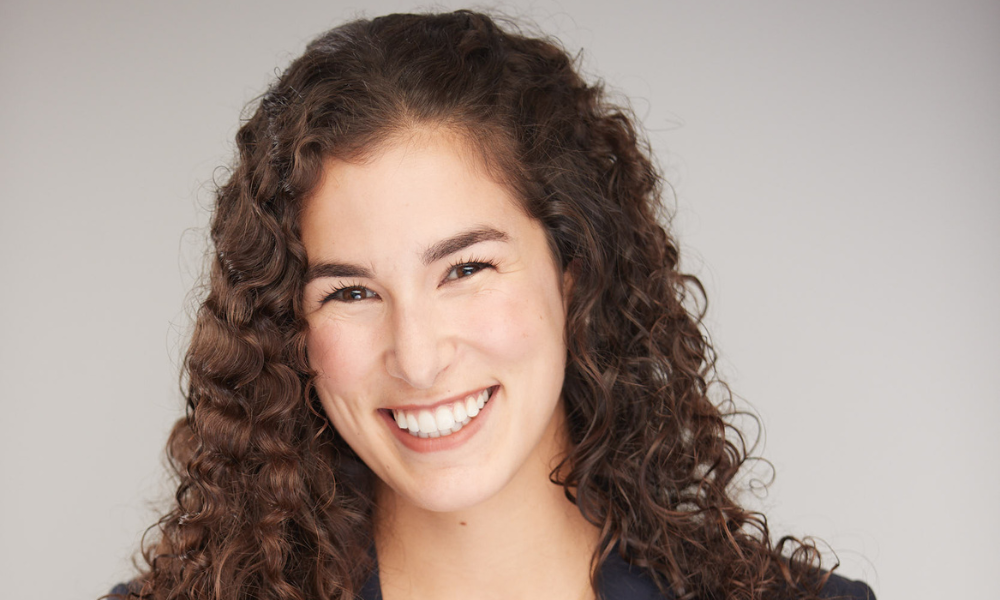
Frédérique Forget advocated for victims of gender-based issues with Lawyers Without Border Canada

Six months volunteering in El Salvador, advocating for reproductive rights and victims of gender-based violence, reminded Frédérique Forget of the passion that guided her into a legal career, the tangibility of international human rights law, and led to a 180-degree career shift when she returned to Canada.
Forget joined Lawyers Without Borders Canada (LWBC) in 2023 as a volunteer legal advisor. She was on leave with the Montreal-based labour, civil, and public law firm, Monette Barakett Avocats s.e.n.c.
With LWBC, Forget spent six months in the Central American nation of El Salvador, promoting access to justice for victims of gender-based violence. The experience was a turning point. When Forget returned, she left the position in private practice that she had held for nearly five years to join a non-profit.
Like many, Forget entered law school with strong ideals of justice, a desire to defend human rights and “participate in something bigger.” After graduating from the University of Montreal, she says she had a positive experience practising at Monette Barakett Avocats, where she learned the rudiments of legal practice, the necessary rigour, and how to build relationships. She litigated and represented public sector organizations in negotiations and collective agreements. She dealt with workplace injury and harassment cases. The latter allowed her to build knowledge that would assist her in her work for LWBC.
She joined the firm a few months after COVID began, and time flew by. Eventually, she began to question whether private practice was the right fit and, if not, what her next step could be.
“I wanted to come back to the roots of why I wanted to go into law.”
When she learned of LWBC’s El Salvador mandate, it felt like a calling. She says she has always been in love with the culture and language, and she had a deep interest in women’s rights and countering gender-based violence.
Forget arrived in El Salvador in a turbulent time. President Nayib Bukele was first elected in 2019 and began his second term this June. Bukele’s “brutal crackdown” on street gangs has drawn criticism from human rights groups but made him Latin America’s most popular leader, according to Al Jazeera. Bukele has swept up thousands of alleged gang members under a state of emergency and amendments to the Criminal Code and the Code of Criminal Procedure. Amnesty International has accused Salvadoran authorities of committing “massive human rights violations,” including arbitrary detentions, torture, and violations of due process, such as the right to a legal defence, the presumption of innocence, and access to an independent judge.
While Forget’s work did not directly involve the human rights situation as it relates to Bukele’s state of emergency, this was the context in the country when she arrived to pursue her work. She participated in the Project Better Access to Justice for Victims of Gender-Based Violence (UNID@S).
In criminal prosecutions arising out of gender-based violence, the victim is typically relatively uninvolved, and UNID@S’s purpose was to “give the victim a voice in the process,” as well as compensation, says Forget.
She and LWBC were also involved in a landmark case for reproductive rights in El Salvador, writing an amicus curiae. Beatriz et al. vs. El Salvador concerned a young woman with a high-risk pregnancy and an unviable fetus that put her life in danger. El Salvador has an absolute abortion ban, and Beatriz could not obtain the necessary medical intervention. She died shortly after a car accident in 2017.
In March 2023, Beatriz et al. vs. El Salvador was heard at the Inter-American Court of Human Rights (ICHR) in Costa Rica. That court will determine whether, under international law, El Salvador violated Beatriz’s human rights in denying her a medically necessary abortion. LWBC said that the case could have repercussions across Latin America and the Caribbean, as abortion is still criminalized in Honduras, the Dominican Republic, and Haiti.
For Forget, the experience demonstrated the power of international law as a useful tool to compel governments to reform domestic law, as well as the power of movements made up of citizens resisting state power.
She adds that, in El Salvador, the LGBTQ+ community is marginalized, and UNID@S works closely with organizations promoting LGBTQ+ rights.
Working in El Salvador was a confirmation that international law and human rights do exist and a confirmation for Forget that they represented the career path she wanted to take.
“Once you open your eyes to this, you cannot really go back and act as if you didn't see it.”
When she returned to Canada, she enrolled in a master’s in human rights program at the University of Quebec in Montreal. Six months ago, she began working full-time at Justice Pro Bono in the organization’s temporary migrant worker program. She also organizes conferences on sexual and physical harassment in the workplace and has worked with the International Labour Organization, a UN agency, on the implementation of the UN convention on harassment in the workplace in El Salvador.
Forget is one of more than 300 lawyers LWBC has deployed to use their legal expertise in fragile countries around the world. LWBC has been operating in El Salvador since 2018 and has a permanent presence in the capital, San Salvador.